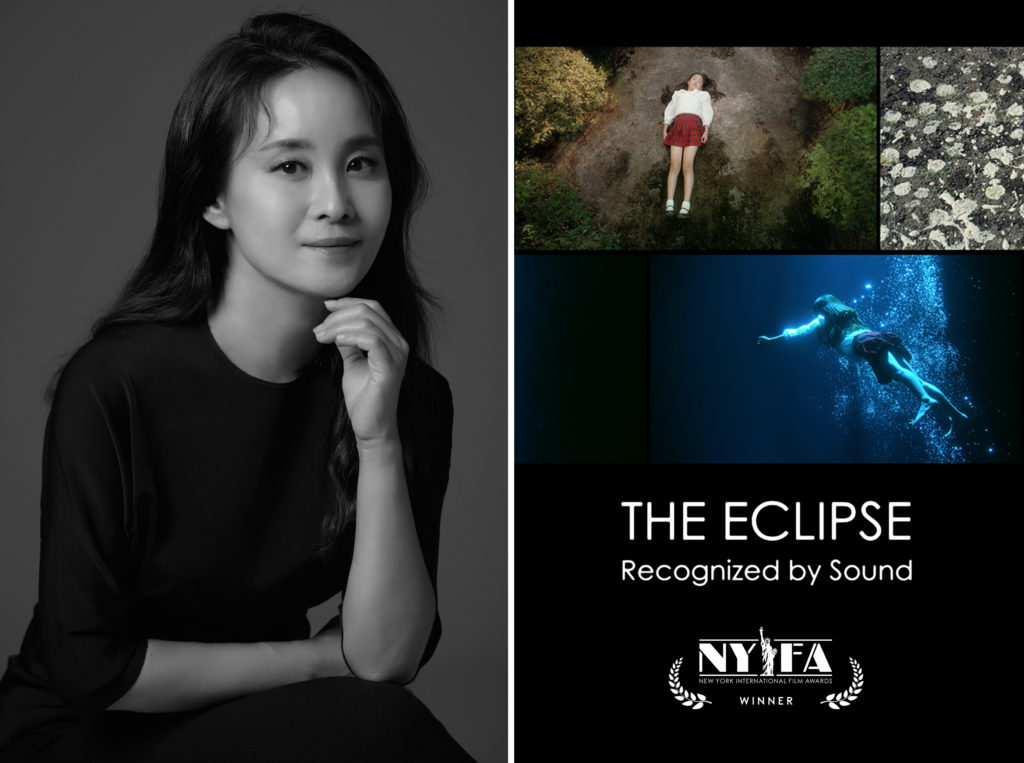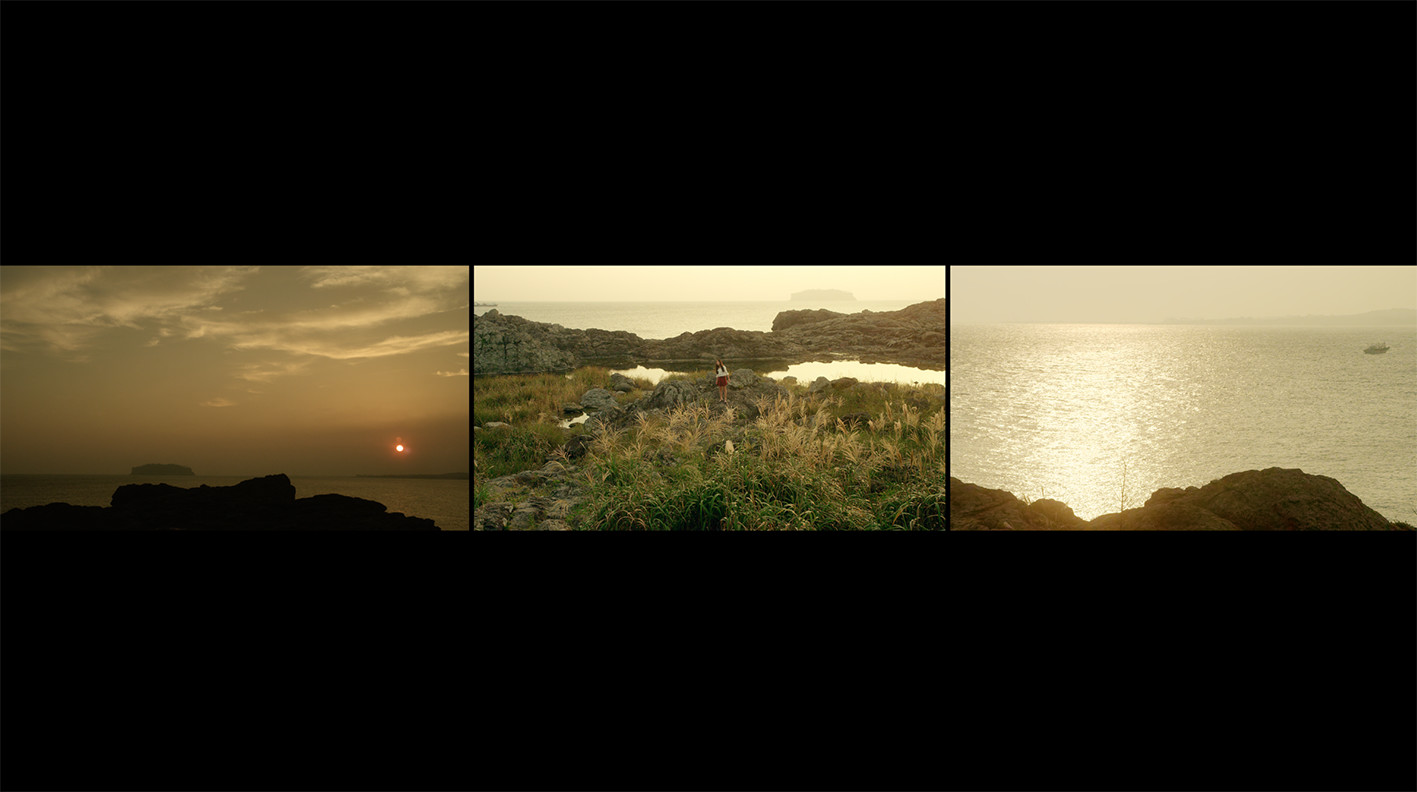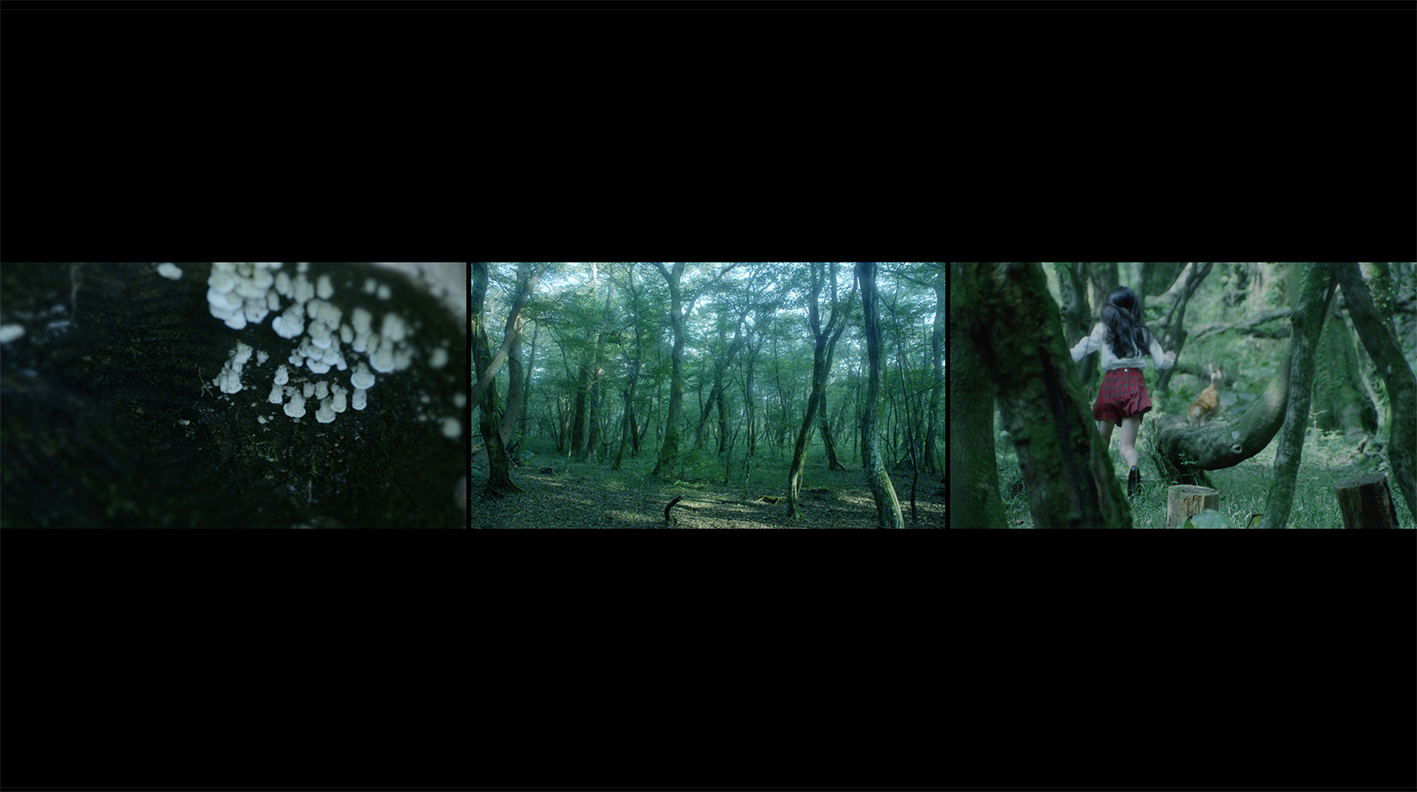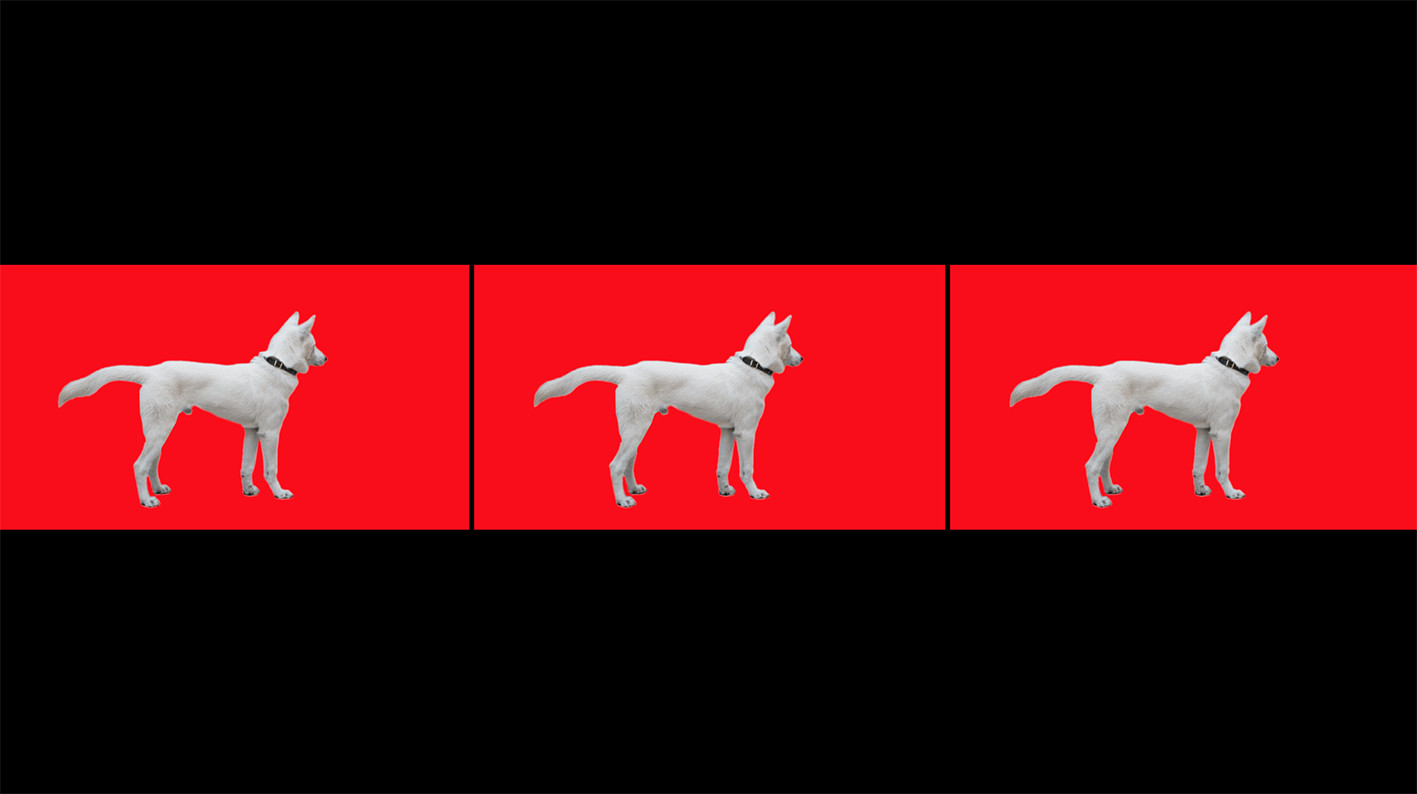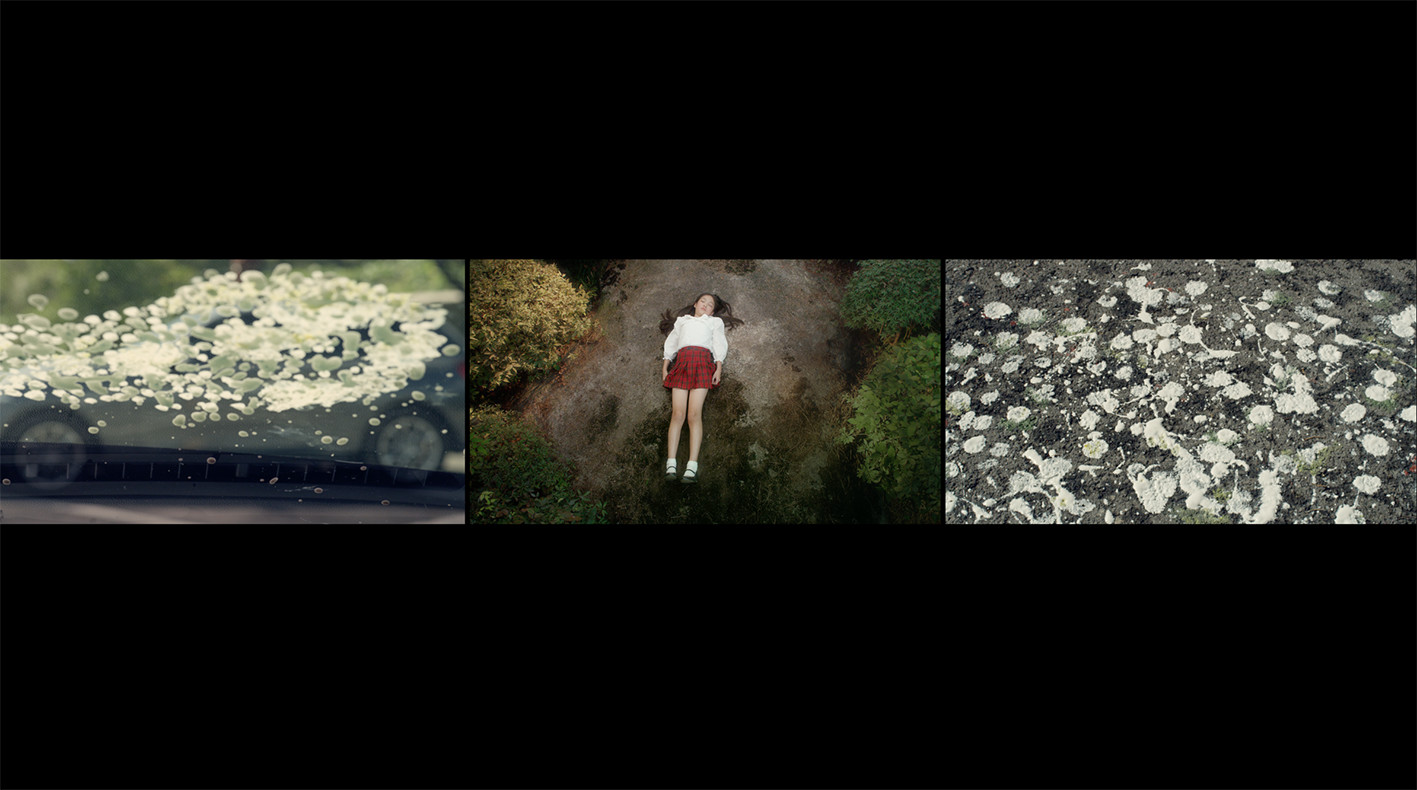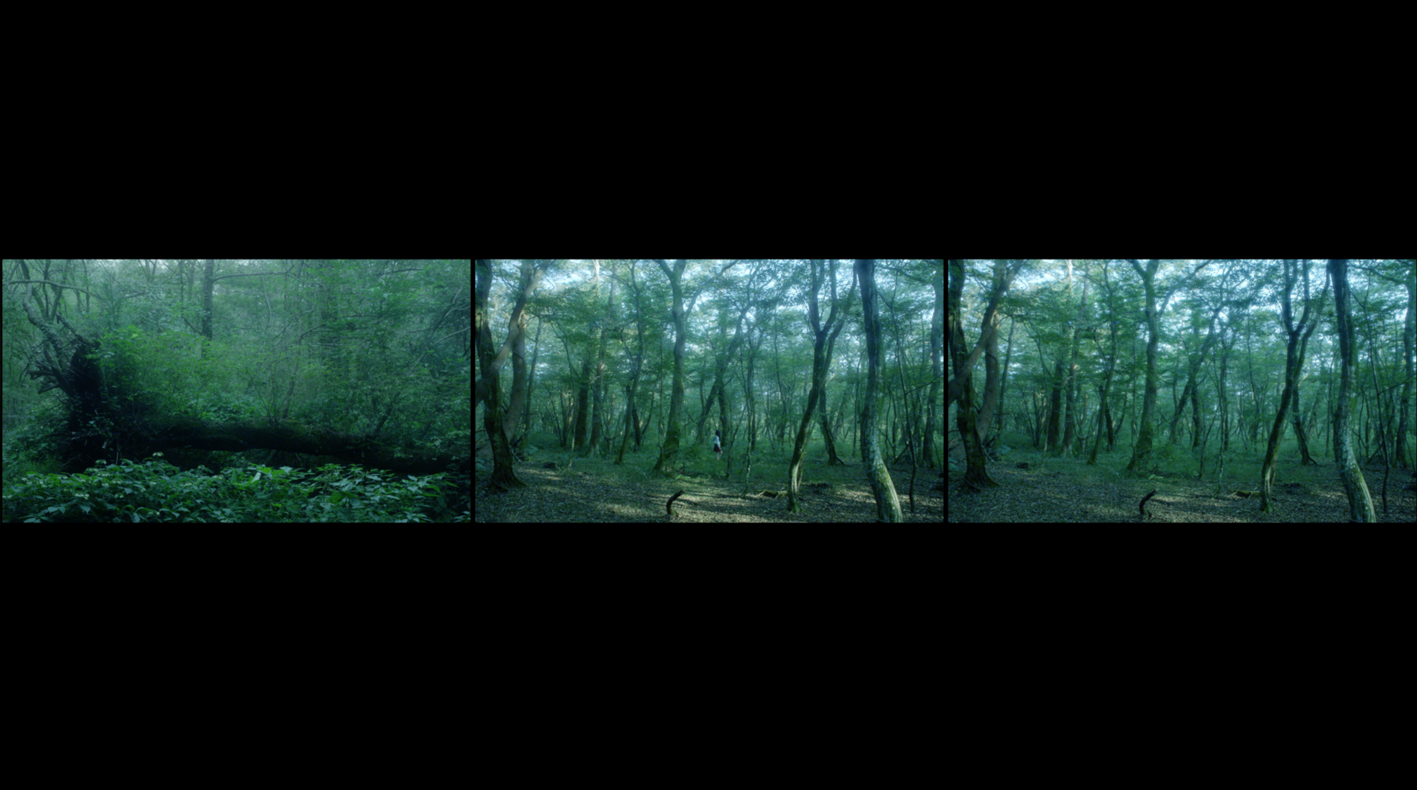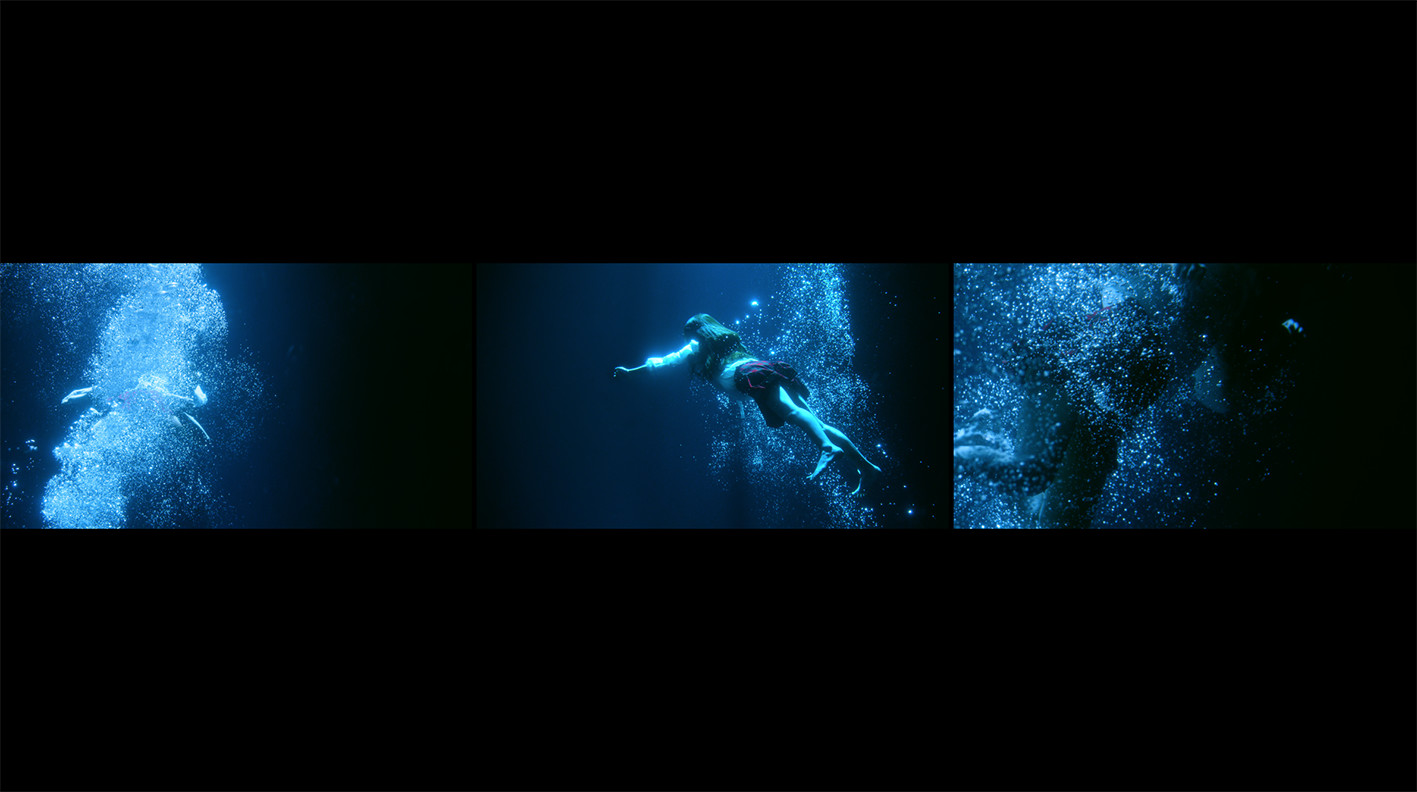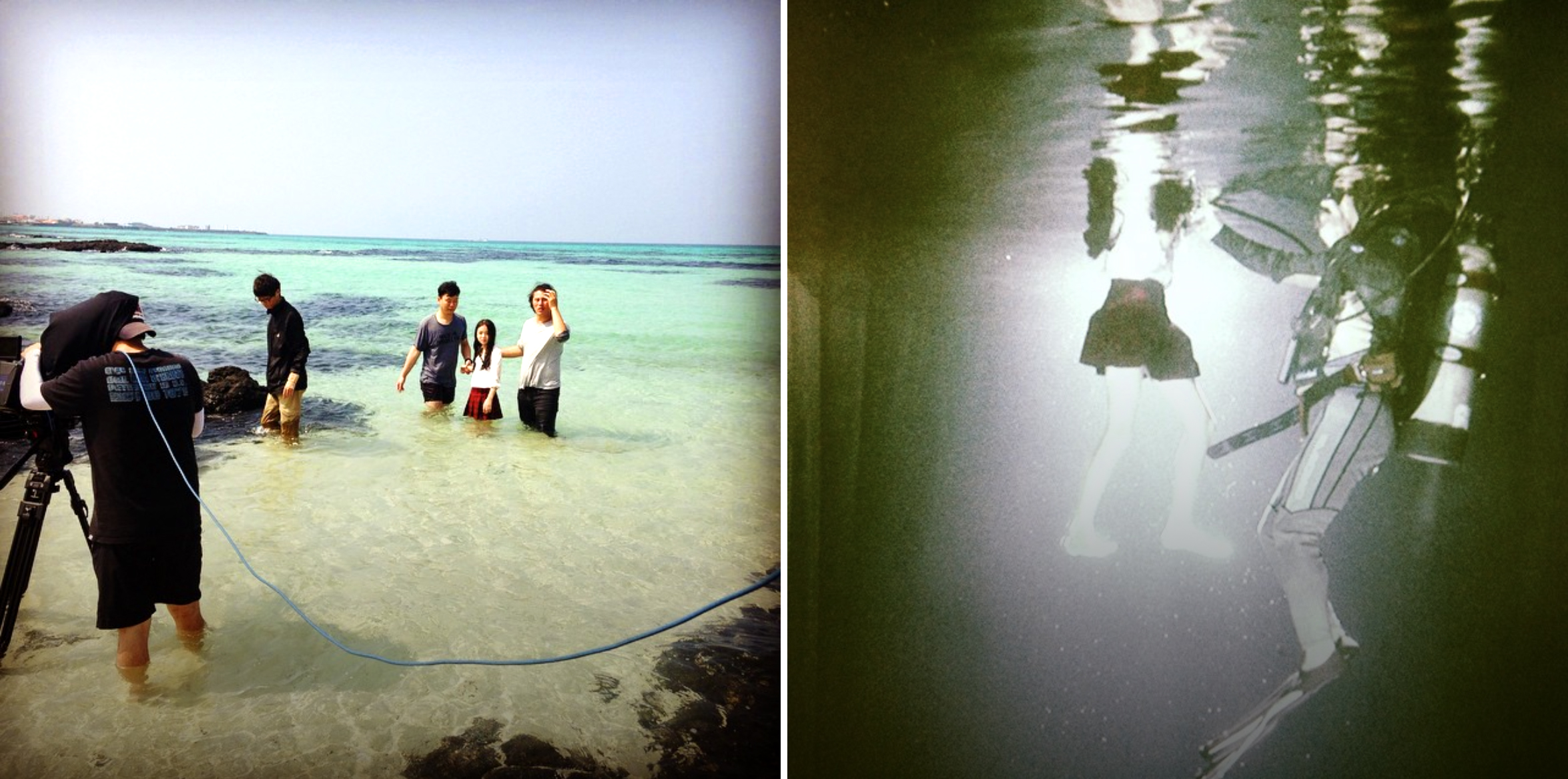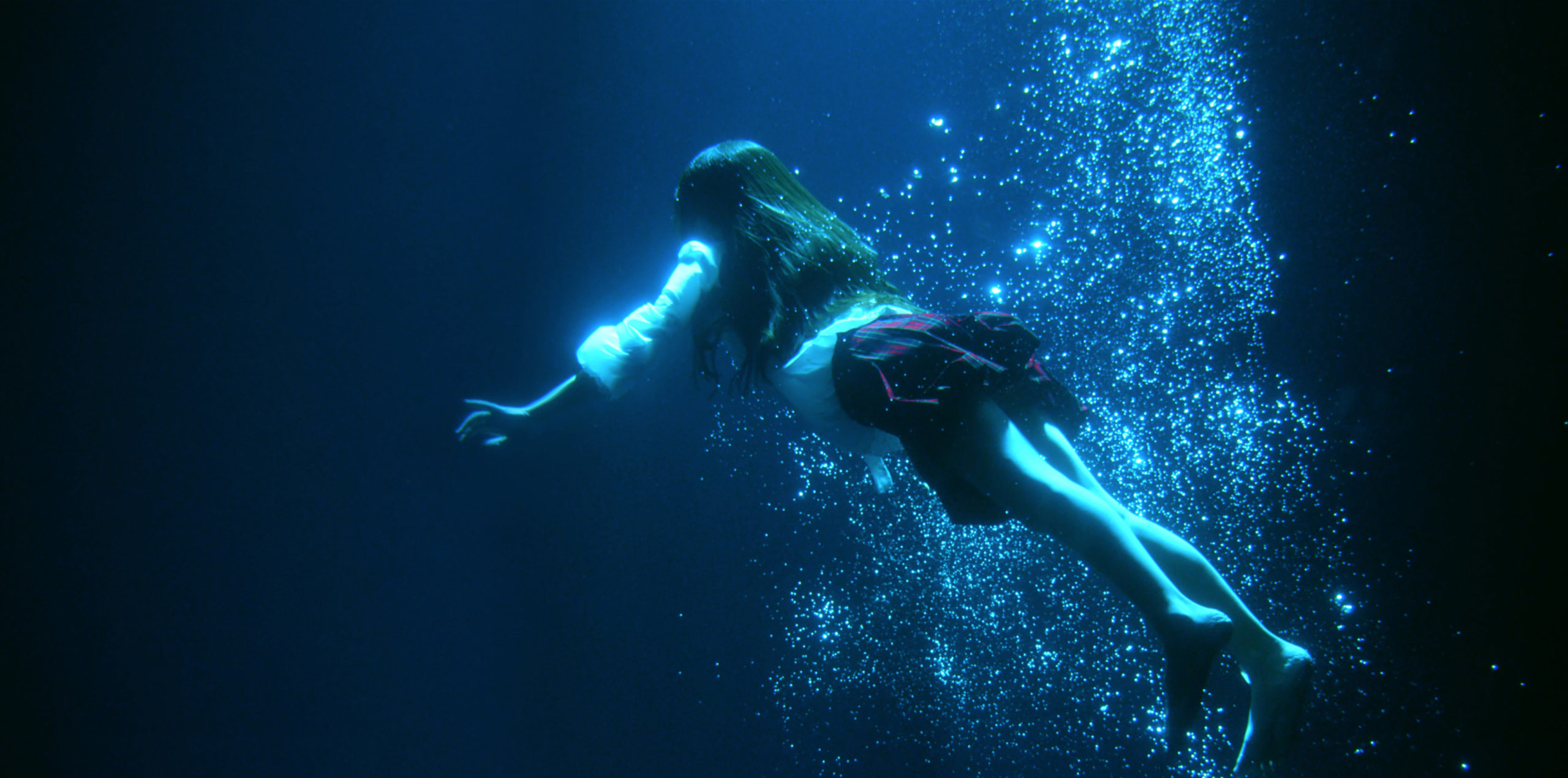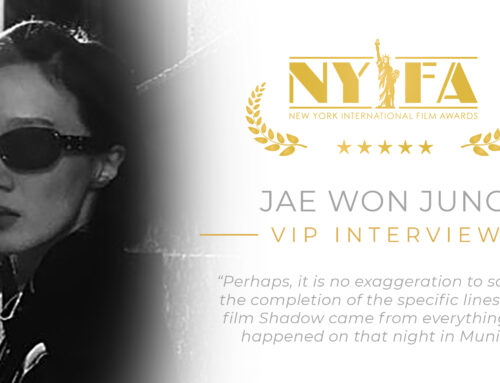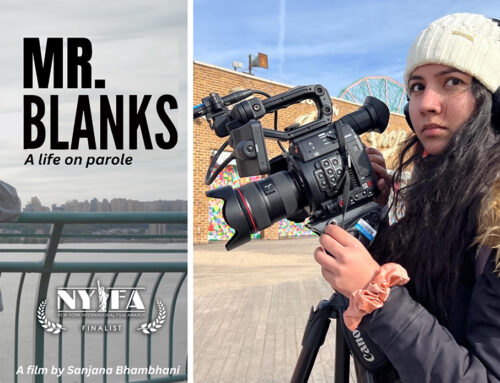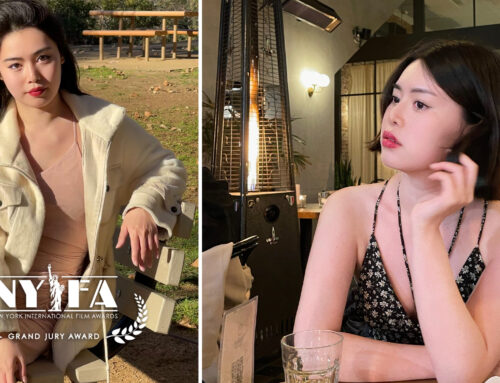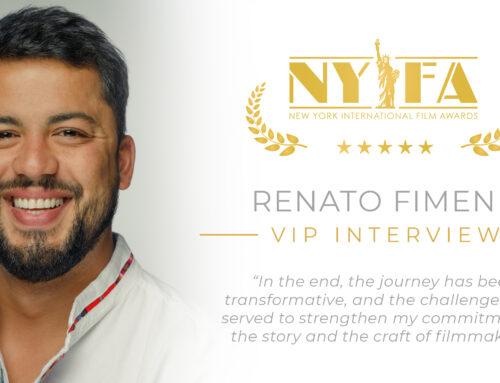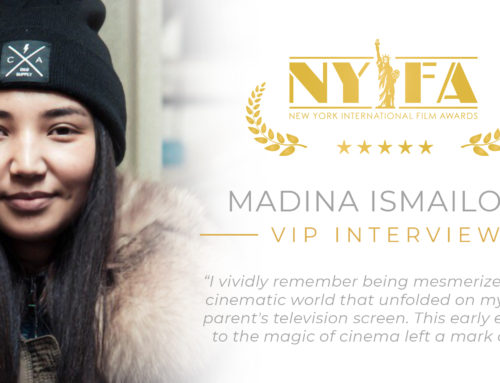VIP Interview with Elly Cho, director of the Award Winning Experimental Short Film ‘The Eclipse: Recognized by the Sound’
Today we introduce Elly Cho, the talented filmmaker, visual artist, and writer of The Eclipse: Recognized by the Sound. In this interview we dig into the making of this breathtaking silent film, where the images guide us through the memories and fragments of Cho’s childhood. Enjoy
Hi Elly, congratulations on your short film! Can you tell us something about your background and what brought you to filmmaking?
I am a visual artist and art explores the intersection between nature, the environment and human behaviour, across various mediums including mixed media, video, and performance art. I would say that I started using filming as one of medium to depict the relationship between nature, environment and human behaviour.
When did you write the script and what was the inspiration behind this film?
Thank you for your selecting my film and I am very honored to be part of the festival. The Eclipse: Recognized by the Sound is a silent film about my memories of growing up during my childhood that became fragments of imagery that composes the whole story. This film is important to me because it depicts who I am, why and what I am doing as an artist. During the process of making this film I discovered that my approach to art making, is largely inspired by the relationship between nature, environment and the viewer’s perception to nature based on their personal history. So, making an artwork about my own history made me realize what I should do as an artist which is to keep making artworks between nature, the environment and human behaviour and protecting nature through art.
You use stunning natural sets, lightning, and landscapes. Where was the movie filmed
This was filmed in three different places-Seoul, Jeju Island and London. I filmed it in my own house and garden because all my childhood memories start from my house. And then since my father had business in Jeju Island, we used to spend every vacation there. So, I took all the film crew and spent three days in the Island. It’s one of most beautiful places in Korea. It had more untouched nature back in the 70’s and 80’s which is what I tried to depict in this film. London is a place where I spent all my 20’s studying at the University. When my brother died, I was in London and couldn’t go to his funeral because I couldn’t get an airplane ticket at all. Not being able to attend his funeral, made me feel guilty and led me to grieve longer. So, I had to include London in the film as a place of grieving and contemplating human condition that effected my spirit.
How did you choose your cast and how did you work with the young actors?
My producer Jun Han Lee helped me a lot for casting. We auditioned many young girls who can swim well and dive as well to film the water scenes. It was difficult to find a child actress that swims and act well. We had difficulties in the sea because we were worried about her drowning. All filming crew went into the water to watch over her. When we were filming in the huge water tank for the scene where the young girl is in a dreamy state-between her memory of childhood and the memory of her brother’s death, after falling into the pond in her garden. I made her scream in the water tank because this was how I felt in London sort of helpless and going through a phycological break down. But I fell into the pond when I was a child. So, it was really describing what had happened in my life. The dog was also difficult I would say… You know it’s difficult to control them from time to time…
The director Elly Cho and the poster of ‘The Eclipse: Recognized by the Sound’
We found it very interesting when frames would show different perspectives of what the characters were looking at, among others: the sky and the perspective of the people looking at the sky or the river and the young girl looking at the river. What is the message you wanted to convey through these images?
There are many different water scenes as well as sky in this film. when frames show the sky in London and Korea with the girl looking at pond (you said river), those scenes were meant to be the climax of the film in a way. The sky changes as the girl cries and the scene goes to London because this overlap of two different places with the Eclipse happening, is where the girl’s emotion moves from the childhood memories to the death of her brother. And I wanted to put the young girl looking at the pond before the grown-up girl looking at London sky. She was craving to be in Korea when her brother died but she couldn’t, and I wanted to metaphorically connect her to a place of her memory in Korea. So, I placed my garden in the middle frame with a hospital bed by the two side screens showing me lying in bed in London. It’s as though I am in Korea in my dreams. The death of my brother in the moment of eclipse happening, was what inspired me to start this film.
How did you shoot the underwater scenes?
There are many water scenes, but two main ones were one in the Island and the other in the huge water tank just out of Seoul. We rented it for one day to film all the underwater scenes including the young girl screaming and going up to the surface of water in the sea. We had difficulties in the sea because we were worried about her drowning. When we were filming in the huge water tank for the scene where the young girl is in a dreamy state-between her memory of childhood and the memory of her brother’s death, screaming to get her devastating feeling about the death of her brother and the kidnaped dog by the dog meat trader, it was difficult for the girl to hold her breath since she wasn’t a professional diver. In fact, she has never acted in a such a deep tank before. We had 3 people underwater to help her breath with the oxygen tank. I made her scream in the water tank because this was how I felt in London sort of helpless and going through a phycological break down. But I fell into the pond when I was a child. So, it was really describing what had happened in my life.
Astrologically, an Eclipse means a major step forward in the way we experience duality, contradiction, and the unknown, while in ancient times these events generated fear. Other directors such as Antonioni with L’eclisse and Lars Von Trier with Melancholia used these evocative phenomena in their movies. What does the Eclipse communicate in your film?
Eclipse is the climax of an unforgettable event in the film. Eclipse in this film, also means non-answerable natural phenomenon connected to the day of my brother’s death. In this film, I seem to have locked time itself there and kept dreamlike quality throughout the film going back and forth from my childhood memories. As you noticed I am everywhere in the film, just like a memory comes and goes in our lives. Being a young girl in one scene then a grown-up woman in the next scene, mixed up just like in my head, confused about the phenomena of the eclipse happening at the very moment of my brother’s death. Not to mention that day when I woke up my car was covered with birds’ feces and couldn’t not see the color of its normal color. I had to go on a bus to meet a friend in Hyde Park to watch the Eclipse because I just didn’t know how to clean such a mess in my car. It was obscure and lucid. How could this have happened? I was confused and fearful. Then My sister called in the middle of the total eclipse and said that my brother just died unexpectedly after being hospitalized because of a pneumonia. That was such a shock to me that I dropped all my belongings on the grass and started running to my flat. It’s like a collage of memories topped with desires, what I wanted it to be in ta specific time. Because I couldn’t get a ticket to Korea to my brother’s funeral at the time, I placed myself in Seoul in the film. I would like to say that the total Eclipse is a radical poetry, depicting of a powerful memory in this film.
Is there a funny anecdote from the production process you would like to share?
There is a beautiful intersection between nature, the environment, and humans in this film, but also a nostalgic wandering in the woods of the character. What did you want to communicate through nature? Since growing up I experienced the importance of the nature and environment in Jeju-Island. I wanted to depict a young girl wondering in the woods and seashore experiencing the untouched nature and communicating with the nature which was my own experience. I wanted to communicate a message that can be self-read through the imagery and sound of nature in this film. And get an imaginative response of the viewer’s personal recognition about the nature. I imagine this can be variety of responses from wanting to be in nature to knowing their own value of nature.
This is a silent film, however, the “sounds of nature” tells us so much about the story, and perhaps lead us to imagine dialogues with the environment. Can you tell us more about the use of sound in the Eclipse?
The Eclipse: Recognized by the Sound is a silent film about my memories of growing up during my childhood that became fragments of imagery that composes the whole story. The sound was important not just because it’s a silent film but also it communicates the nature with the viewer. Another words it makes up the story and completes the unspoken dialog. This film is important to me because it depicts who I am, why and what I am doing as an artist. During the process of making this film I discovered that my approach to art making, is largely inspired by the relationship between nature, environment and the viewer’s perception to nature based on their personal history. So, making an artwork about my own history made me realize what I should do as an artist which is to keep making artworks between nature, the environment and human behaviour and protecting nature through art. I feel that I am comfortable working with muti screens than just a single screen in general. In this film though, I wanted to create a dialog between the screens depicting the thoughts of the characters of the film and making a story more interesting by having different places in each screen that creates its own narratives and tensions.
SPOILER ALERT. Can you tell us more about the final scene of the movie? What does that encounter represent?
The final scene is also a depiction of my desire as I mentioned in question 7. This film is like a collage of memories topped with desires. I wanted to see myself with my brother in Korea in the film because I couldn’t get an airplane ticket to Korea to my brother’s funeral at the time, so I kept placing myself in Korea in the film. I placed a young girl-myself with my brother grown up because I only remember myself being close to him as a child. also, because I wanted to imagine what he might be looking like as a grown-up man. Even though he died of the age 20, he was a child and a young boy to me, not being able to spend much time with him after moving to London. It’s a total I would like to say that the total Eclipse is a radical poetry, depicting of a powerful memory in this film.
Who would you love to work with in the film industry and why?
Being a visual artist is amazing, but the main reason would be that I can extend the audience from the visual arts field to a wider audience by working in film industry. I would love to work with Peter Greenway for his Provocative anesthetic and Ewan McGregor as an actor. I was really inspired by the film The Pillow Book when I was doing MFA in London. It’s one of the most powerful films by Peter Greenway about desire, pleasure, and love. Set in various cultural countries in Asia, it captures the essence of fundamental issues about human desire and love in a mysterious way. I really like the way Peter Greenway’s confusing but intellectual quality of depicting a subject matter in his work. It makes me think deeply about the subject because he confuses me with the subject theoretically. I like Ewan McGregor as an actor. His acting has an enigmatic and pure quality in the film the pillow book as well as other films. In the film Moulin Rouge, I like the artistic suggestions that took me to a total ecstasy, a sensation that bounces back instantly and makes you raise questions about the core subject of the film that is trying to communicate with the viewer It does so through visual concept, musical composition, and dance movement. International and Korean Film company’s and producer Guilds who would be interested in working with me. I really would love to know more producers in film industries and theater. Also, choreographer Marty Buhler, dancer Michael Trusnovec producer Alexander Ekman, and producer Marie-Louise Sid.
Who is your biggest inspiration?
I would say most of my inspiration come from the visual art fields. I am always inspired by great artists such as Marc Chagall, William Turner, Jan van Eyck, Willem de Kooning, Francis Bacon, and Mark Rothko
What’s next for you?
I have been working with various artists from actors to dancers including the ones from the national dance company Korea. I would like to work on an experimental dance film this year and at the same time, I would like to produce an experimental documentary film about the climate change combining techniques of the visual art, working with musical actors, dancers, and musicians. There are many artists I want to work with. I want to work with experimental composer and vocal artists, singers such as Pharrell Williams, vocalist Nicole Scherzinger, singer Alexandra Burke, actress Adrienne Warren, percussionist such as Ingar Zach and more. Last but the least I would like to work with visual artists such as Banksy, Kiki Smith, Simone Leigh and liam Gillick.
Follow Elly Cho and her projects on:

